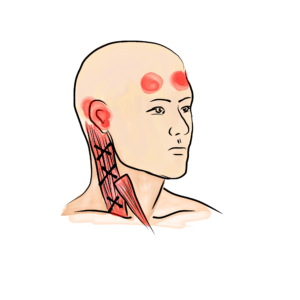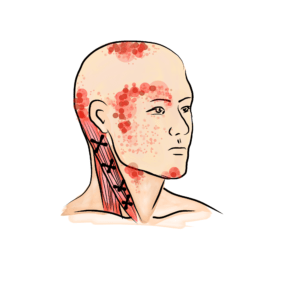Neck and shoulder pain: how to find the main cause and why is it the tongue?
Many people suffer from neck and shoulder pain. Most of them seek help from chiropractors and massage therapists and receive some relief. However, very often after a period of improvement, somewhere in 3-4 weeks, the symptoms return – neck and shoulder pain and stiffness again prevent a full life.
What should I do?
We have two ways.
One is to go to a chiropractor or massage therapist again and again to “stretch the neck and back muscles” and keep going back and forth for the rest of your life because, unfortunately, it is impossible to get rid of pain permanently with such methods, so it can only be temporarily alleviated.
The second method is suitable for those who want to learn how to really help themselves and get a permanent improvement. This way is through awareness of the main cause of pain in the neck and shoulders.
How to do it?
How to find the root cause of neck and shoulder pain?

Answer the following questions to understand how to proceed:
1. Did you injure your neck in the past – any neck injury?
If this is the case, or you doubt or do not remember, then you need to consult an orthopedist in order to rule out an untreated injury to the spine or vertebrae. At this stage, it is very important to make sure that there are no problems with the bones.
2. Do you have problems with clenching or grinding your teeth?
To find out, look in the mirror at your upper and lower front teeth – if the edges of the incisors are flat and uneven, there are microcracks on the teeth, and if you occasionally have damaged fillings on the front teeth, then there is a high probability that you have the following problems And then you should learn more about the condition of your temporomandibular joint (TMJ).
If you’re wondering what the root cause of TMJ problems is, the short answer is anchor tongue (short tongue frenulum).
This small, often imperceptible defect affects the entire body. One of these influences is an imbalance in the muscular system of the temporomandibular joint.
But why the pain in the neck?
 How do the TMJ and anchor tongue affect the neck muscles?
How do the TMJ and anchor tongue affect the neck muscles?
Disruption of the CNS system leads to poor posture and constant overstrain of the muscles of the neck and shoulders, which is the cause of pain.
Do you have posture problems? Reality (Experience) shows that many people do not know this. To make a self-check (diagnosis), we suggest taking the following test:
- Ask someone close to you to take a picture of you from the side.
- Stand relaxed, do not move your body. Just look straight like you would look at a cruise ship far in the ocean.(as you would stand in line to buy tickets to a movie or a concert, that is, as relaxed as possible, without controlling your posture.)
- After taking (receiving) the photo, draw a vertical line on it from the middle of the thighs towards the top of the head. It should go at an angle of 90 degrees to the horizontal line (for convenience, you can draw several horizontal lines in the photo).
- Assess how much your posture deviates from the vertical line, and especially assess whether and how much your head is tilted forward.
The more the head is tilted forward, the more problems you will have with your neck, shoulders, back, teeth grinding and clenching, headaches and snoring, breathing and, again, with the TMJ (a disorder in it leads to poor posture, and poor posture aggravates TMJ problems).
That’s it, you’ve now found a potential root cause of endless neck and shoulder pain. This is the anchor tongue and the imbalance caused by it in the TMJ. Every inch between the vertical line and the ear adds 10 pounds ( 0.45 kg) for your shoulders to bear.
Of course, not all such pains are caused by a shortened frenulum of the tongue, but in the vast majority of cases, it is.
In the same way, incorrect posture is not always a consequence of the anchor tongue and the changes caused by it, but this reason should be considered very carefully. Conclusion
Conclusion
Constant or recurring pain in the neck and shoulders is a reason to carry out the self-evaluation (diagnosis) that we described in this article and to contact a dentist who deals with the correction of a shortened frenulum of the tongue and treat a TMJ. It will also make it possible to undergo professional functional diagnostics and, in case of diagnosis of anchor tongue, to receive treatment and eventually restore the natural position and functions of the tongue and TMJ. Which, in turn, will help align your posture and eventually get rid of debilitating neck and shoulder pain forever. And at this stage, the services of physiotherapists will be very appropriate.






